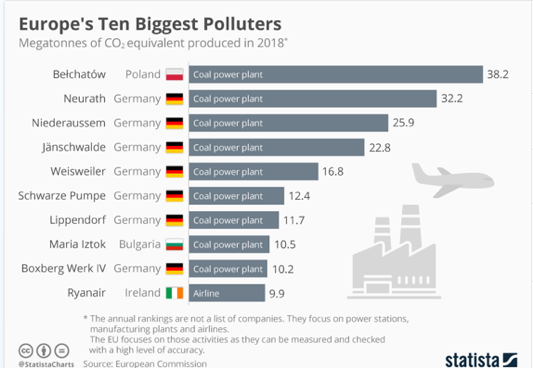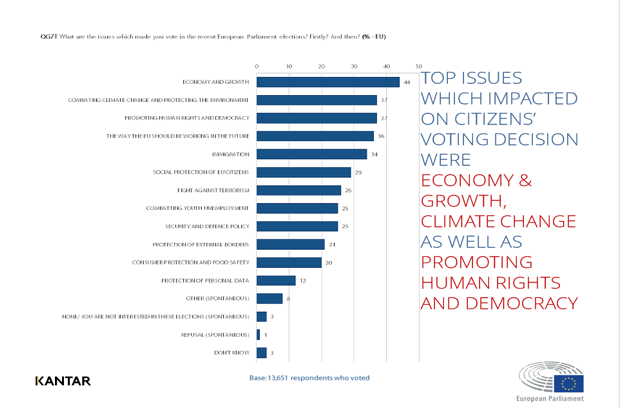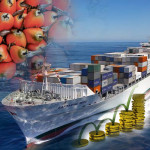Climate change remains top focus for EU
Temperatures are soaring in Europe and the scorching heat wave has been one of the worst experienced in recent times.
Soon the impact of the drastic weather changes will show on the economic activities in the region as it is already being felt in the summer tourist arrivals across Europe.
But in Brussels the heat has been on since the European Parliament and Council held their elections and the two top political parties have lost their stronghold in the parliament.
The Greens coalition party strode strongly across Europe as it took on 75 positions in the august house, placing it as the fourth largest voting bloc in the European Union (EU).
Centre–right European People’s Party (EPP) and the Progressive Alliance of Socialists and Democrats (S & D) both lost their majority although the latter continues to hold the reins of the largest group in the Parliament.
More than the heat that was felt during the elections were the major shifts in the top positions and this includes 60- year-old Ursula von der Leyen, a former German defence minister, who became the first female European Commission president.
The European parliament elections are among the largest in the world in terms of electorate size and with the positive turnout across the EU, means the people want the EU to be more focussed on the environment.
Undoubtedly, there will be a greater push to mitigate climate change to reduce GHG emissions from all economic sectors, hence the Greens are likely to seek for more environmental regulations to be passed in the Parliament.
It will insist on the sustainability criteria to be part of trade deals in future.
These recent shifts in power have invoked considerable interest within the palm oil industry circles and numerous queries.
For instance, would the MSPO and ISPO be accepted and recognised or would there be a completely new scheme for the palm oil sector to comply for exports to the EU?
So far there has been no indication.
Italian MEP David-Maria Sassoli, a former TV journalist, has been elected as European Parliament President and is expected to serve for half the parliamentary term until January 2022.
For the palm oil industry, the European Parliament and the various Committees have in the past taken decisions against its interests.
In 2017 for instance, two Committees voted to ban Palm Oil biofuels under the RED Directive; the Environment Committee (ENVI) and the Industry, Research & Energy Committee (ITRE). Close on the heels was a vote in January 2018 by the European Parliament to ban palm oil under the Renewable Energy Directive (RED).
The EU Commission classified palm oil as an unsustainable feedstock for biofuels in its Delegated Act of 13 March which came into force in June 2019. What this piece of legislation means is palm oil is excluded in the renewable energy targets under its RED II while palm-based biofuels will be gradually phased out from the EU market by 2030. In other words, there is no market access for palm biofuels.
Ironically, the EU declared US soybean as sustainable as President Trump threatened tariffs on European cars & other products.
Currently rapeseed is the most dominant biodiesel feedstock used in the EU (44%), followed by palm oil (29%) and used cooking oil (15%).
This move has threatened 650,000 smallholders and over 3.2 million Malaysians who rely on the industry for their livelihood. Both Malaysia and Indonesia have announced that they would file a case at WTO as the Delegated Act is discriminatory and only singles out palm biofuel.
It has also sent wrong signals to the industry players.
For a start, the ban does not distinguish between sustainable or unsustainable palm oil which leaves companies that have obtained certification to guarantee sustainability feeling frustrated. More so, when palm biofuel exported to the EU has been certified and exported under the German based ISCC scheme.
Why would the EU that has been pushing for sustainability turn its back from accepting certified sustainable palm oil? Clearly it wants to protect its local oilseeds as they find it difficult to compete with palm oil.
Instead of sending the right signals that the EU supports sustainability, the Delegated Act has left those who are keen to push hard towards certified sustainable palm oil wonder if their efforts will render any future results of ensuring a sustainable supply chain.
The EU is aware that the share of foreign commodities is increasing and this is posing a big challenge to the domestic market.
Palm oil has been a target since the Renewable Energy Directive (RED) came into force in 2010 where EU established a framework for achieving GHG emissions reductions for sustainable biofuels. Although low default values were accorded to palm oil feedstock, findings by G. Pehnelt & C. Vietze indicated the values for the GHG emissions savings potential for palm oil feedstock for electricity generation to be 52 %, and for transportation biodiesel between 38.5 and 41 %, way above the 35% sustainable threshold.
Von der Leyen, the new EU Commission President, has pushed for a carbon neutral continent by 2050 continuing the EC’s strategic long-term vision adopted last year November for a prosperous, modern, competitive and climate neutral economy by then.
Some of the biggest carbon dioxide emissions are from coal power plants located in Germany.

The EU Commission plays an important role in that it drafts legislation which are then passed on to the Council and the Parliament.
Climate change will feature prominently in discussions at the EU which is driven by the concern by citizens. Many young Europeans are concerned about environment and climate change. Politicians are being urged to do more for climate change. According to an EP study, economy and growth and climate change were top issues which impacted citizens’ voting decision.

To ensure farmers implement practices that are environmentally friendly, support in terms of subsidy is common as reflected in the EU Common Agriculture Policy (CAP). The EU provides financial aid and subsidies under its Common Agriculture Practice (CAP) to farmers.
CAP constitutes almost 40% of the total budget with an aim to ensure a decent standard of living for farmers through income support and market measures; and ensure sustainable rural development.
Unlike the EU, the oil palm industry which is concentrated in developing countries is unique as it is not subsidised, instead, is highly taxed by governments.
As the price of agriculture commodities such as palm oil are dependent on market forces, prices of commodities often see fluctuations. Farmers are the most vulnerable to price fluctuations. A higher income means a better purchasing power for farmers who are then able to meet their basic needs. A lower price means less to spend, and lesser inputs.
Malaysia has shown the way by providing support for small farmers to be MSPO- certified reflecting the importance the country places on sustainability.
Will these efforts now be recognised by the EU by way of supporting country certification schemes such as MSPO and ISPO?
Or, will the EU try to re-invent the wheel with an EU based scheme that will be detrimental to the development of the palm oil sector which has complied with the call for CSPO oil but has been getting lukewarm response from the market where only 50% of the CSPO has found a home. Surely the industry demands that their efforts are met with more uptake of CSPO oil by the European buyers who first made this call followed by markets elsewhere.
Now that Malaysia is committed to producing MSPO oil, one must ask if EU is equally committed to purchase it and pave the way for a more open trade.
The European Parliament and Commission President will need to play a balancing act to ensure they don’t side-line the developing country farmers who play a huge role in meeting the UN SDG goals of eradicating poverty and hunger.
These are conversations both the EU and industry must have so that there is a win-win situation for our common goals to protect our environment.
Recent developments may throw some light on the acceptance of certification schemes.
The European Commission on 23rd July presented proposals to tackle global deforestation through both “regulatory and non-regulatory measures” to ensure consumers in the EU consume products “from deforestation-free supply chains”.
The proposal has indicated that there is a need to strengthen standards and certification schemes “that help to identify and promote deforestation-free commodities”, such as coffee, cocoa, palm oil, soy and timber although, as expected, palm oil is mentioned more than other commodities. But a closer look indicates that it is soy, cocoa and coffee that the EU should be more concerned with, as these commodities have a much higher deforestation footprint
EU’s share of imported embodied deforestation (1990-2008) amounts to:
| Soy | 4.45 million ha (Mha) – 39% |
| Cocoa | 0.6 Mha – 27% |
| Coffee | 0.3 Mha – 27% |
| Palm Oil | 0.9 Mha – 17% |
The proposal titled Stepping up EU Action to Protect and Restore the World’s Forests states the following:
Standards and certification schemes that help to identify and promote deforestation-free commodities should be strengthened through, among other things, studies on their benefits and shortcomings and by developing guidance, including assessment based on certain criteria to demonstrate the credibility and solidity of different standards and schemes. Such criteria should address aspects such as the robustness of the certification and accreditation processes, independent monitoring, and possibilities to monitor the supply chain, requirements to protect primary forest and forests of high biodiversity value and promote sustainable forest management.
Would this mean current certification schemes will not be automatically accepted but will be further evaluated to demonstrate their credibility? At the same time, the palm oil industry too must strive to set and meet the most stringent standards and compliance and keep raising the bar so that there will be no questions raised on its sustainability credentials.
For the palm oil industry it’s time to reinvest and focus on consumer expectation in the EU to continue exporting palm oil. Surely the high consumer expectations with regards to traceability, health and environment offers new opportunities for a high value market and better returns in future.
_________________________________________________________________________
Belvinder Sron is the Deputy CEO of MPOC and has been actively involved in monitoring and tackling European issues.
__________________________________________________________________________










Leave a Reply